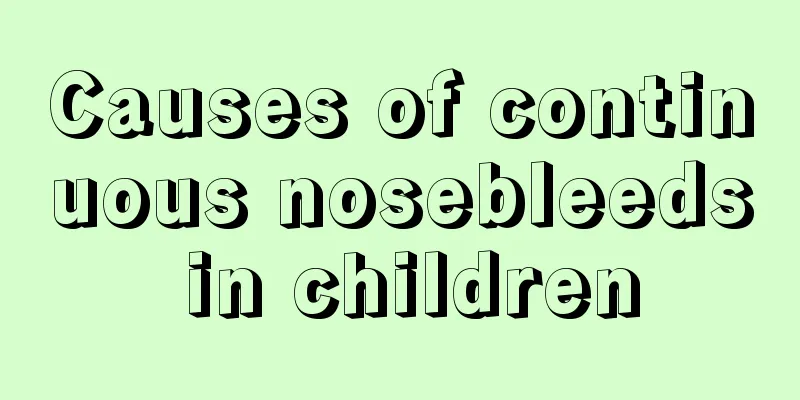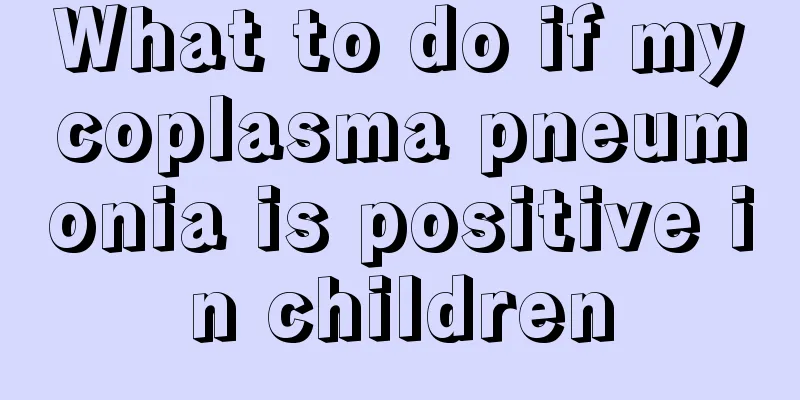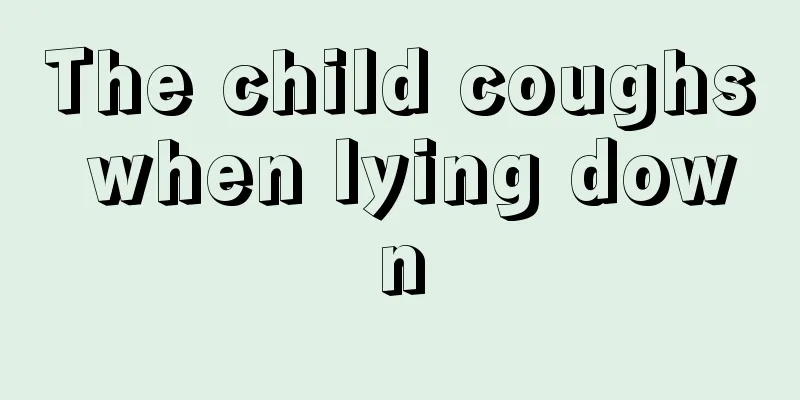Causes of continuous nosebleeds in children

|
Children's physical development is not complete, and their resistance to external stimuli is relatively weak. However, children are very naughty and lively, and are particularly curious about everything, which often causes some injuries. For example, when a child falls or collides, it is easy to cause nosebleeds. When a child has a nosebleed, parents must remain calm and not increase the child's tension, making the nosebleed more serious. Why do children often have nosebleeds? Reason 1: Fragile nasal mucosa The nasal mucosa of young children is more fragile. In dry weather, more blood needs to flow through the nasal cavity to increase the temperature and humidity, which can easily cause congestion of the nasal mucosa and lead to bleeding. Cause 2: Trauma Children are very active and can easily collide or be hit hard while running and jumping, causing their fragile noses to bleed. Putting foreign objects into the nasal cavity while playing can also easily cause nosebleeds. Reason 3: Picking your nose Young children with allergic rhinitis or colds will have itchy noses due to runny nose and nasal congestion, which may cause sneezing or picking their nostrils with their fingers, causing injury and bleeding to the fragile nasal mucosa. Reason 4: Abnormal lifestyle Many children are prone to nosebleeds due to irregular schedules, less sleep, and weak bodies. Children who suffer nosebleeds due to irregular work and rest schedules usually also have a lot of eye and nasal mucus and bad breath. Reason 5: Allergy Nasal allergies are particularly obvious in winter, and nosebleeds are easily caused by the fragility of the nasal mucosa and the dry cold air in winter. Most babies who are prone to nosebleeds have symptoms of allergic rhinitis, because the nasal mucosa of allergic rhinitis often has erosion symptoms, and they often rub their noses due to itching, causing injury to the nasal mucosa and bleeding. Reason 6: Other diseases Clinically, certain systemic diseases such as abnormal coagulation factors or tumors in the nasal cavity may also manifest themselves as "nosebleeds" in the early stages. If your baby often has nosebleeds for no reason, it may be a sign of certain diseases. You should take him to an ENT doctor to find out the real cause. Some medicines contain anticoagulant properties, which may cause nosebleeds during use. What to do if your child has a nosebleed 1. When a child has a nosebleed, parents must not be nervous or panic, so as to avoid negative emotions affecting the child, because emotional stability is conducive to local hemostasis. 2. Immediately pinch the child's heel (the depression between the ankle joint and the heel bone) with the thumb and index finger. If the left nose is bleeding, pinch the right heel, and if the right nose is bleeding, pinch the left heel. This should stop the bleeding. Press the sides of the nasal cartilage (nose wings) with your hands for about 5 minutes. You can also use a clean cotton ball, gauze or paper towel to stuff the bleeding nostril and breathe through your mouth. 3. Sit on a chair or bed and lean your head back slightly but not too far; you can put a towel soaked in cold water or an ice pack on your forehead or nose bridge to help stop the bleeding; 4. If the bleeding does not stop after a period of time, go to a nearby hospital immediately. 5. Special attention should be paid to the fact that when the nose is bleeding, the head should be kept in the correct posture. If the head is lowered, the pressure in the facial veins will increase, which may aggravate the nosebleed. However, if the head is tilted back too much, the nosebleed will flow back into the mouth, which is not conducive to stopping the bleeding. |
<<: What are the consequences of a baby's head fontanelle being hit?
>>: What causes swollen upper eyelids in children?
Recommend
How to treat children's dysphoria
Children's genitals are a very common childho...
Girl's bloody stool
We all know that children's digestive systems...
Why babies wake up easily?
Having a baby is the happiest thing for us. Howev...
How to prevent colds for children
Children's immunity is relatively weak compar...
What should I do if my child has a fever of 381 degrees?
Children are the focus of the entire family. Beca...
What should children eat to supplement vitamin C?
Nowadays, after many families have children, the ...
Reasons for slow response in newborns
There is a folk legend that babies born naturally...
What is the normal height for a five-year-old child?
Children have different physical indicators at di...
What causes jelly-like mucus in babies?
When a baby's stool is jelly-like and mucus-l...
What should I do if my baby is zinc deficient at four months old?
A baby needs the most care from his parents in th...
What to eat if children are deficient in vitamin D
Although many infants and young children have sup...
Reasons why children like to pick their noses
Many women return to work three months after givi...
What should I do if my 15-year-old child always suffers from insomnia?
With the development of society and the progress ...
How to deal with a frightened child
When a child is born, he or she is curious about ...
How to prevent swollen tonsils in children
Children's resistance is very limited, and th...









